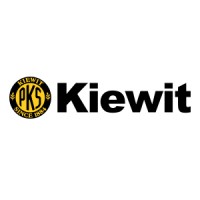
Joe Pizik Electric
Excellent
None



Excellent
None

Excellent
At Kiewit, the projects we deliver make a difference, and we offer opportunities for you to make one, too. Our construction and engineering professionals work on some of the industry’s most complex, challenging and rewarding projects – whether it’s boring tunnels through mountains, turning rivers into energy, or building bridges that connect communities. Kiewit people tackle important projects of every size, in any market. Start your Kiewit adventure today at kiewitjobs.com. Kiewit is one of North America’s largest and most respected construction and engineering organizations. With its roots dating back to 1884, the employee-owned organization operates through a network of subsidiaries in the United States, Canada, and Mexico. Kiewit offers construction and engineering services in a variety of markets including transportation; oil, gas and chemical; power; building; marine; water/wastewater; industrial; and mining. We are an Equal Opportunity Employer. Employment decisions are made without regard to race, color, religion, national or ethnic origin, sex, sexual orientation, gender identity or expression, age, disability, protected veteran status or other characteristics protected by law.
Security & Compliance Standards Overview
No incidents recorded for Joe Pizik Electric in 2025.
No incidents recorded for Kiewit in 2025.
Joe Pizik Electric cyber incidents detection timeline including parent company and subsidiaries
Kiewit cyber incidents detection timeline including parent company and subsidiaries
Last 3 Security & Risk Events by Company
MinIO is a high-performance object storage system. In all versions prior to RELEASE.2025-10-15T17-29-55Z, a privilege escalation vulnerability allows service accounts and STS (Security Token Service) accounts with restricted session policies to bypass their inline policy restrictions when performing operations on their own account, specifically when creating new service accounts for the same user. The vulnerability exists in the IAM policy validation logic where the code incorrectly relied on the DenyOnly argument when validating session policies for restricted accounts. When a session policy is present, the system should validate that the action is allowed by the session policy, not just that it is not denied. An attacker with valid credentials for a restricted service or STS account can create a new service account for itself without policy restrictions, resulting in a new service account with full parent privileges instead of being restricted by the inline policy. This allows the attacker to access buckets and objects beyond their intended restrictions and modify, delete, or create objects outside their authorized scope. The vulnerability is fixed in version RELEASE.2025-10-15T17-29-55Z.
Envoy is an open source edge and service proxy. Envoy versions earlier than 1.36.2, 1.35.6, 1.34.10, and 1.33.12 contain a use-after-free vulnerability in the Lua filter. When a Lua script executing in the response phase rewrites a response body so that its size exceeds the configured per_connection_buffer_limit_bytes (default 1MB), Envoy generates a local reply whose headers override the original response headers, leaving dangling references and causing a crash. This results in denial of service. Updating to versions 1.36.2, 1.35.6, 1.34.10, or 1.33.12 fixes the issue. Increasing per_connection_buffer_limit_bytes (and for HTTP/2 the initial_stream_window_size) or increasing per_request_buffer_limit_bytes / request_body_buffer_limit can reduce the likelihood of triggering the condition but does not correct the underlying memory safety flaw.
In Xpdf 4.05 (and earlier), a PDF object loop in a CMap, via the "UseCMap" entry, leads to infinite recursion and a stack overflow.
A vulnerability was identified in NucleoidAI Nucleoid up to 0.7.10. The impacted element is the function extension.apply of the file /src/cluster.ts of the component Outbound Request Handler. Such manipulation of the argument https/ip/port/path/headers leads to server-side request forgery. The attack may be performed from remote.
HCL Traveler for Microsoft Outlook (HTMO) is susceptible to a credential leakage which could allow an attacker to access other computers or applications.